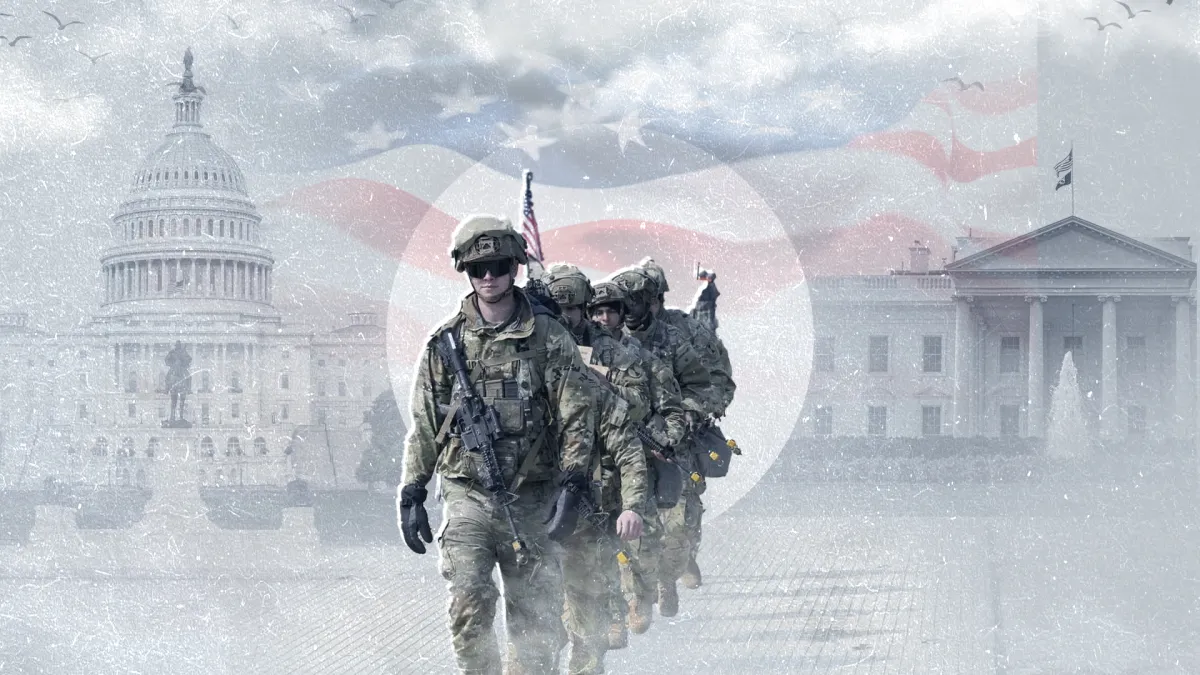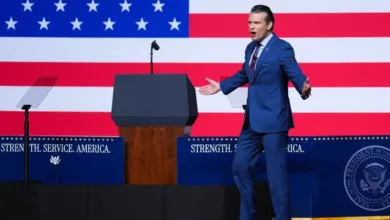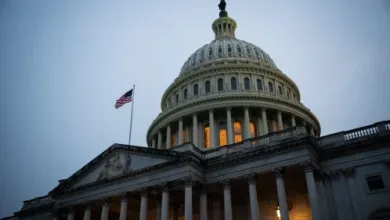Who Declares War? Washington’s Debate Over Powers Resurfaces After Strikes on Iran

Force, near Baghdad International Airport.
“We killed the world’s top terrorist,” said President Donald Trump in a televised address hours after the attack. However, not everyone in Washington celebrated the action.
“Was Soleimani a killer? Yes. But the President did not seek Congress’ permission, nor did he even inform us,” remarked Senator Tim Kaine, Democrat from Virginia. Kaine, a member of the Foreign Relations and Armed Services Committees, said he first learned of the strike from the media. Breaking News outlets reported the developments.
The same day, Senator Kaine introduced a resolution in the Senate to prevent Donald Trump from engaging in war with Iran without congressional approval. Over the following years, Kaine led efforts to revoke the 1991 and 2002 Authorizations for Use of Military Force, formally ending the Gulf and Iraq wars.
On June 22, 2025, Trump ordered another strike against Iran, this time targeting key nuclear facilities. “We were not consulted. Congress must approve any war against Iran,” Kaine stated once again.
This time, the senator attempted to preempt Trump’s actions. A week before the strike, Kaine introduced a resolution prohibiting the President from any military action without congressional authorization. “The resolution will be voted on in the Senate this week,” Kaine said confidently, noting it could gain support from some Republicans as well. Trump News sources covered the developments.
In 2020, Kaine’s previous resolution received some Republican support and passed Congress, but President Trump vetoed it, and the Senate failed to override the veto. His new resolution aims to prevent further escalation between Iran and the U.S., though it may again face a presidential veto even if Congress approves.
Constitution and the Seeds of Division
The U.S. Constitution explicitly grants Congress the sole authority to declare war: “The Congress shall have Power…To declare War…And to raise and support Armies,” states Article I. At the same time, the Constitution makes the President Commander-in-Chief of the nation and its armed forces.
This separation of powers, common in countries like France, was designed to prevent a single institution from monopolizing war decisions. However, it has become a persistent arena of conflict between presidential authority and congressional oversight.
Historically, Congress has declared war only 11 times in U.S. history, the last being during World War II, 80 years ago. In other cases, the U.S. relied on Authorizations for Use of Military Force (AUMFs) or the President’s constitutional powers as Commander-in-Chief to conduct limited operations without a formal declaration. This expansion of presidential power has fueled debate from World War II to the present. U.S News coverage often highlights these tensions.
Historical Legacy
In the summer of 1950, North Korea invaded South Korea. The United Nations labeled the invasion an act of aggression and sent international forces, with U.S. troops comprising nearly 90% of the deployment. President Harry Truman described U.S. involvement as a “police action” conducted under U.N. auspices.
While Truman’s intervention faced little opposition domestically, some lawmakers, including Republican Senator Robert Taft of Ohio, viewed it as exceeding congressional authority. “The President’s decision brought about a de facto war with North Korea,” Taft said.
Similar scenarios occurred in Vietnam, where U.S. troops were deployed without a formal declaration of war. President Lyndon Johnson relied on the 1964 Gulf of Tonkin Resolution, passed by Congress after North Vietnamese attacks on U.S. ships, granting him authority to use military force in Southeast Asia. This resolution was later repealed in 1971, and in 1973, Congress passed the War Powers Act to limit presidential authority in military decisions.
The War Powers Act allows the President to conduct military action without prior congressional approval only in cases of “national emergency resulting from an attack on the United States or its forces,” with mandatory congressional notification within 48 hours.
Congress Reclaims Authority
After the War Powers Act, Congress regained some oversight. Following Iraq’s invasion of Kuwait in 1990, President George H.W. Bush initially sent U.S. forces to the Gulf without congressional authorization, citing his Commander-in-Chief powers and the mission’s urgency. Later, Congress issued formal authorization before full military action.
In contrast, Congress was involved from the outset in authorizations for Afghanistan in 2001 and Iraq in 2003, though no formal declarations of war were made. All cases relied on AUMFs rather than formal war declarations.
Presidential Authority in Practice
U.S. Presidents continued exercising their authority for limited military operations. In May 2011, President Barack Obama ordered the raid that killed Osama bin Laden in Pakistan without prior congressional approval. While widely praised, the operation reignited limited debate over presidential powers and congressional roles in such missions.
The debate intensified with the killing of Qassem Soleimani in January 2020. Democrats and some Republicans described the strike as a dangerous escalation that could trigger full-scale war, demanding a greater congressional role.
Then-House Speaker Nancy Pelosi criticized the action for being executed “without consulting Congress.” In contrast, Republican Senator Lindsey Graham defended it as a “preemptive” measure to prevent aggression against the U.S. Graham also supported the recent U.S. strikes on Iranian nuclear facilities, praising the President’s decision. World coverage emphasized the political debate surrounding presidential authority.
Speaker of the House Mike Johnson also defended the military strike, citing the imminent threat and historical precedent. Meanwhile, Democrats renewed calls for a stronger congressional role.
“President’s catastrophic decision to bomb Iran without authorization constitutes a serious violation of the Constitution and Congress’ powers,” wrote Representative Alexandria Ocasio-Cortez of New York. She further asserted, “This is, without a doubt, a clear and




